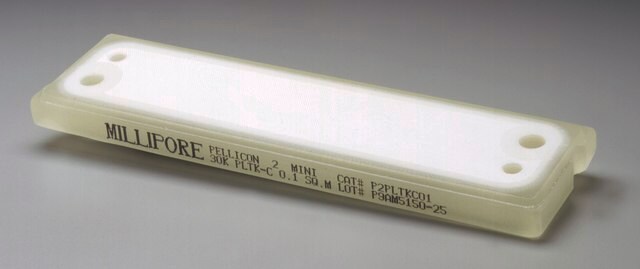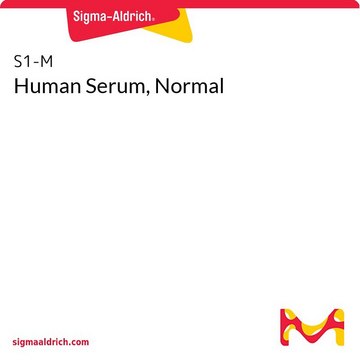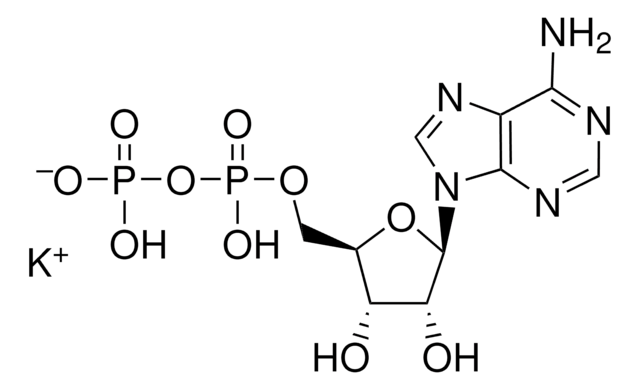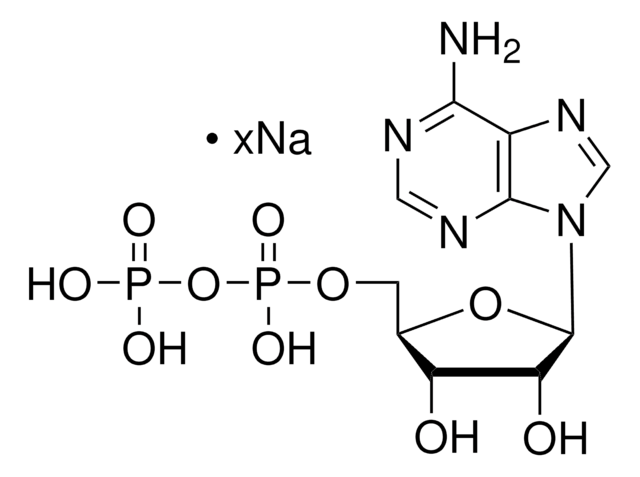HTS028RTA
Ready-to-Assay sst2 Somatostatin Family Receptor Frozen Cells
Human
Sign Into View Organizational & Contract Pricing
All Photos(1)
About This Item
UNSPSC Code:
41106514
eCl@ss:
32011203
NACRES:
NA.84
Recommended Products
Product Name
Ready-to-Assay sst2 Somatostatin Family Receptor Frozen Cells, Human sst2 GPCR frozen cells for Calcium Flux FLIPR Assays.
biological source
human
Quality Level
manufacturer/tradename
Ready-to-Assay
technique(s)
calcium flux assay: suitable
NCBI accession no.
detection method
fluorometric
shipped in
dry ice
General description
Millipore’s Ready-to-Assay GPCR frozen cells are designed for simple, rapid calcium assays with no requirement for intensive cell culturing. Millipore has optimized the freezing conditions to provide cells with high viability and functionality post-thaw. The user simply thaws the cells and resuspends them in media, dispenses cell suspension into assay plates and, following over night recovery, assays for calcium response.
Somatostatin (sst) is a multifunctional peptide with two biologically active forms, sst-14 and sst-28, which are synthesized in neurons throughout the brain as well as in peripheral tissues such as the pancreas and the gut (Gillies, 1997). SST exerts a diverse array of effects that include inhibition of endocrine secretion, modulation of neurotransmission, and regulation of cell proliferation by stimulating a family of five G-protein-coupled receptors. Somatostatin receptor sst2 mRNA is predominantly expressed in central nervous system. Study using sst2 knock-out mice has found the increased anxiety-related behaviour while locomotor and exploratory activity was decreased in stress-inducing situations (coupled with an increase in pituitary ACTH release, a regulator of the stress response) (Viollet et al., 2000) . In the periphery, inhibition of glucagon release by sst in mouse islets is primarily mediated via sst2 (Strowski et al., 2000). In addition, endogenous sst functions through sst2 to suppress gastric acid secretion through inhibition of gastrin activity (Martinez et al., 1998). Millipore’s cloned human sst2-expressing cell line is made in the Chem-1 host, which supports high levels of recombinant sst2 expression on the cell surface and contains high levels of the promiscuous G protein Gα15 to couple the receptor to the calcium signaling pathway. Thus, the cell line is an ideal tool for screening for agonists, antagonists and modulators at sst2.
Somatostatin (sst) is a multifunctional peptide with two biologically active forms, sst-14 and sst-28, which are synthesized in neurons throughout the brain as well as in peripheral tissues such as the pancreas and the gut (Gillies, 1997). SST exerts a diverse array of effects that include inhibition of endocrine secretion, modulation of neurotransmission, and regulation of cell proliferation by stimulating a family of five G-protein-coupled receptors. Somatostatin receptor sst2 mRNA is predominantly expressed in central nervous system. Study using sst2 knock-out mice has found the increased anxiety-related behaviour while locomotor and exploratory activity was decreased in stress-inducing situations (coupled with an increase in pituitary ACTH release, a regulator of the stress response) (Viollet et al., 2000) . In the periphery, inhibition of glucagon release by sst in mouse islets is primarily mediated via sst2 (Strowski et al., 2000). In addition, endogenous sst functions through sst2 to suppress gastric acid secretion through inhibition of gastrin activity (Martinez et al., 1998). Millipore’s cloned human sst2-expressing cell line is made in the Chem-1 host, which supports high levels of recombinant sst2 expression on the cell surface and contains high levels of the promiscuous G protein Gα15 to couple the receptor to the calcium signaling pathway. Thus, the cell line is an ideal tool for screening for agonists, antagonists and modulators at sst2.
Cell Line Description
GPCR Cell Lines
Host cells: Chem-1
Biochem/physiol Actions
GPCR Class: A
Protein Target: sst2
Target Sub-Family: Somatostatin
Components
Pack contains 2 vials of mycoplasma-free cells, 1 ml per vial. Fifty (50) mL of Media Component.
Storage Class Code
10 - Combustible liquids
WGK
WGK 1
Flash Point(F)
Not applicable
Flash Point(C)
Not applicable
Certificates of Analysis (COA)
Search for Certificates of Analysis (COA) by entering the products Lot/Batch Number. Lot and Batch Numbers can be found on a product’s label following the words ‘Lot’ or ‘Batch’.
Already Own This Product?
Find documentation for the products that you have recently purchased in the Document Library.
Our team of scientists has experience in all areas of research including Life Science, Material Science, Chemical Synthesis, Chromatography, Analytical and many others.
Contact Technical Service








